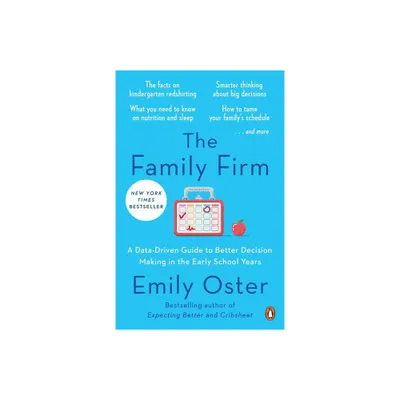Home
Adaptation or Expiration in Family Firms: Organizational Flexibility in Emerging Economies
Loading Inventory...
Barnes and Noble
Adaptation or Expiration in Family Firms: Organizational Flexibility in Emerging Economies
Current price: $147.00


Barnes and Noble
Adaptation or Expiration in Family Firms: Organizational Flexibility in Emerging Economies
Current price: $147.00
Loading Inventory...
Size: OS
*Product Information may vary - to confirm product availability, pricing, and additional information please contact Barnes and Noble
Andres Hatum explores determinants of organizational flexibility in this examination of four family-owned companies, two flexible and two less flexible, from the edible oil and pharmaceutical industries. By means of an innovative analysis - including longitudinal analysis, coding analysis, statistical analysis and the use of original display charts - he illustrates the determinants of flexibility and sheds light on the process of transformation and adaptation of family firms, an area that has not yet been the subject of extensive empirical inquiry.
The management literature has claimed that the complexity of business contexts has forced firms to confront hypercompetitive or high-velocity environments. Behind such claims lies a new interest in the dynamics of adaptation, and in particular a firm's flexibility as a way of adjusting under conditions of uncertainty. The businesses studied here have had to contend with the environmental volatility that characterized Argentina for some years. The author identifies five determinants of flexibility as a set of organizational and managerial capabilities that enabled some firms to adapt quickly in a highly competitive environment: heterogeneity of the dominant coalition, centralization and formalization of decision-making, low macroculture embeddedness, environmental scanning, and a strong organizational identity. These findings were analyzed and interpreted by developing theoretical ideas from three areas between which historically there has been no interface: organizational flexibility, organizational innovativeness and institutional embeddedness.
This insightful examination into what enables some family-owned businesses to survive and thrive and causes others to fail will be of interest to academics concerned with business flexibility and adaptation, as well as to managers and owners of family businesses.
The management literature has claimed that the complexity of business contexts has forced firms to confront hypercompetitive or high-velocity environments. Behind such claims lies a new interest in the dynamics of adaptation, and in particular a firm's flexibility as a way of adjusting under conditions of uncertainty. The businesses studied here have had to contend with the environmental volatility that characterized Argentina for some years. The author identifies five determinants of flexibility as a set of organizational and managerial capabilities that enabled some firms to adapt quickly in a highly competitive environment: heterogeneity of the dominant coalition, centralization and formalization of decision-making, low macroculture embeddedness, environmental scanning, and a strong organizational identity. These findings were analyzed and interpreted by developing theoretical ideas from three areas between which historically there has been no interface: organizational flexibility, organizational innovativeness and institutional embeddedness.
This insightful examination into what enables some family-owned businesses to survive and thrive and causes others to fail will be of interest to academics concerned with business flexibility and adaptation, as well as to managers and owners of family businesses.


















